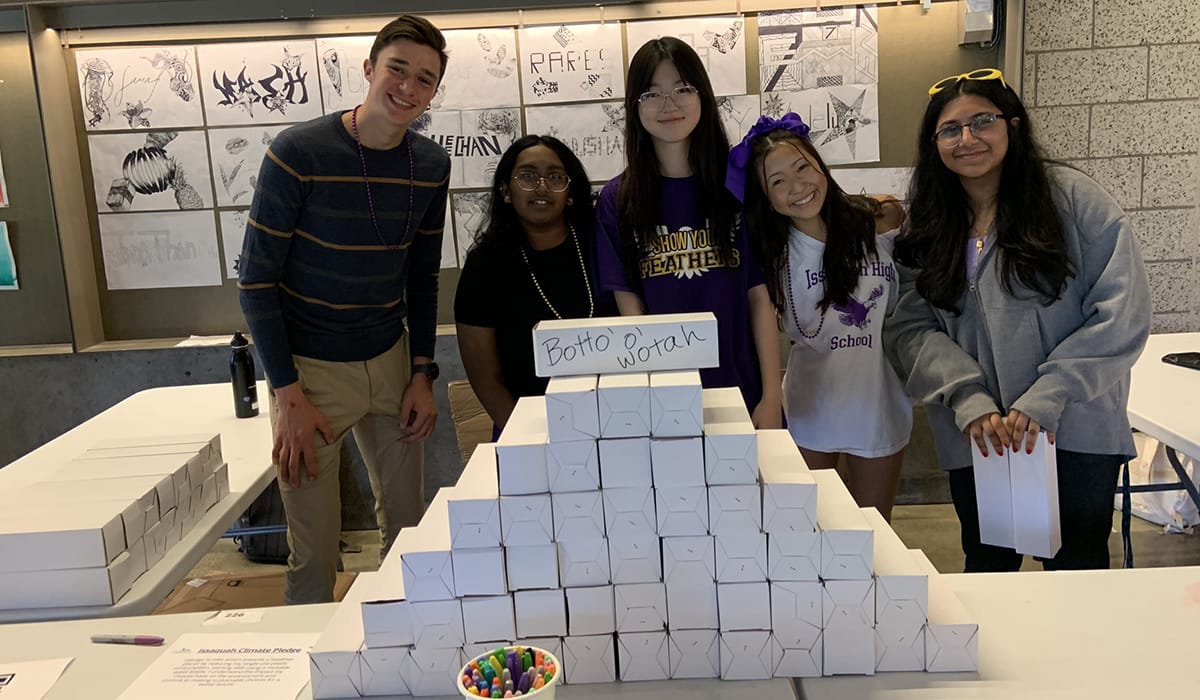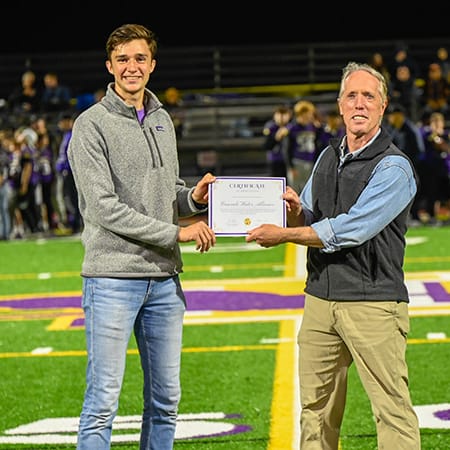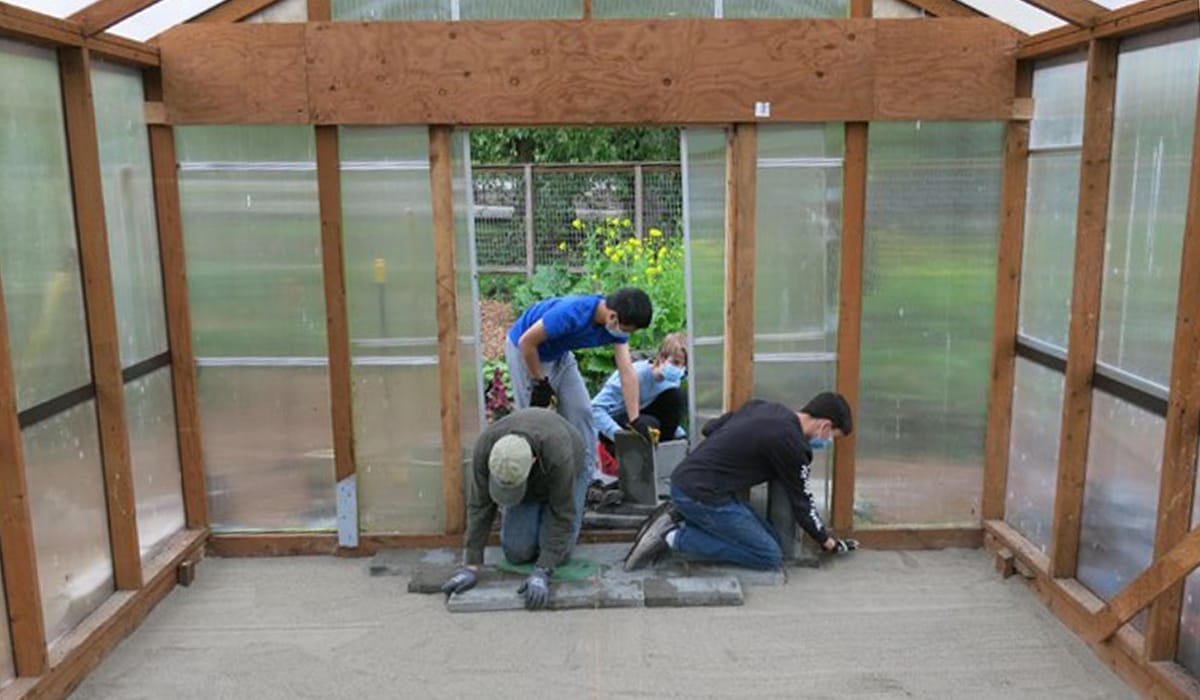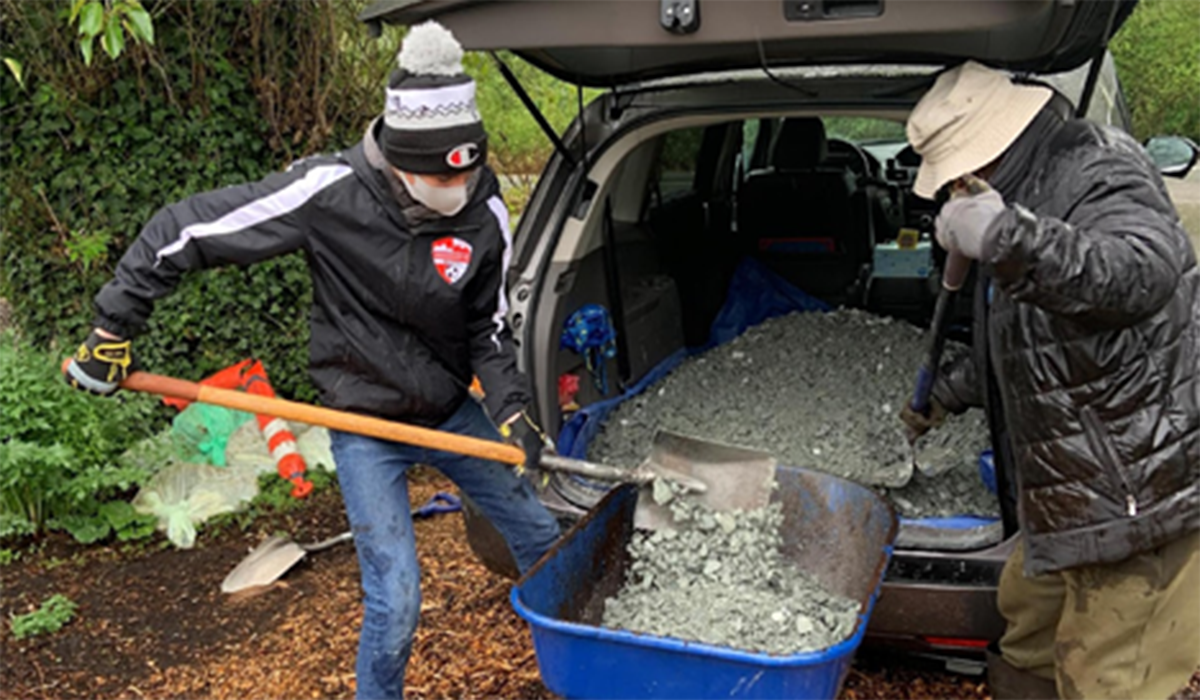Youth Leader Champions a Greener Future for His Community and Beyond

Meet Daily Point of Light Award honoree Matthew Fischer. Read his story, and nominate an outstanding volunteer or family as a Daily Point of Light.
As a dedicated sustainability ambassador for both the City of Issaquah and the Issaquah School District, Matthew Fischer has contributed over 30 hours monthly since 2023, leading impactful environmental initiatives that inspire lasting change. One of his successful campaigns, “I Bike to School,” encouraged eco-friendly commuting, while “My School’s New Bottle Filler” promoted reusable alternatives through a partnership with the Cascade Water Alliance, securing $3,000 to install a bottle filler and distribute over 500 refillable bottles to students.
Matthew’s reach extends beyond his own school. Collaborating with the Issaquah School District Board, he has helped develop a district-wide sustainability policy backed by support from five city councils. His work with the district’s Facilities team on optimizing HVAC systems in 30 school buildings has cut each building’s energy use intensity by 20%, reducing the district’s overall energy footprint. He also contributed as a data analyst on a $1 million federal grant proposal, which aims to replace diesel school buses with electric alternatives, furthering carbon reduction efforts.
Serving as Student Body president at Issaquah High, Matthew initiated the ASB Student Government Sustainability Strategy, now implemented across 18 schools in Washington. This strategy targets key areas, including electrification, water conservation, zero-carbon commuting and waste reduction. These projects have collectively helped cities meet ambitious sustainability targets and increased environmental awareness among students. Read on to hear more about Matthew’s vision for a cleaner, more sustainable Washington State.

Tell us about your volunteer role.
As Student Body president at Issaquah High School and a volunteer sustainability ambassador, I’ve led several campaigns, such as Turn-Off-the-Lights Day (TOLD), My School’s New Bottle Filler and Zero Carbon Commute. For the new bottle filler project, I partnered with the Cascade Water Alliance to secure $3,000 in grants for a retrofitted bottle filler. In anticipation of this new station, I partnered with the nonprofit We Need Water to distribute over 500 refillable bottles. For TOLD, I have spread this campaign to eight other schools in Washington State, with the campaign happening for the second straight year.
Beyond the school level, I’ve worked closely with five city governments to gain support for the passage of a school district-based sustainability policy. Ultimately, I rallied a team that presented to the Issaquah School District school board and passed Operation Expectation 17: Sustainable Operations. Building off of the passage of this policy, I was a student draftee on a $650 million district bond including $300 million allocated for building modernization throughout the district. I have also worked with the district facilities team to optimize the HVAC systems at 30 school buildings, reducing energy use intensity (EUI) by 20%.
Additionally, for my Eagle Scout Project, I completely renovated a greenhouse at the Bellevue Urban Garden. Gathering a team of 20 scouts, we transformed the greenhouse from a rotting wood floor and rat-infested shelves to a mesh wiring protection under the floor with pavers on top and shelving built from reclaimed wooden pallets. This renovation doubled their capacity to grow food for local food banks.
What inspired you to get started with this initiative?
What inspired me to get involved was an unwavering belief that while one person can catalyze change, it takes a whole community to make a meaningful impact. Growing up, I was constantly exposed to the environmental challenges of my generation. I realized that ensuring a sustainable future started then, and it’s a continual process extending far beyond today. I saw that small steps could create lasting habits, and real solutions start at a local level building upward.
What are your long-term plans or goals for the organization?
I look forward to continuing as a volunteer sustainability ambassador in college initiatives wherever I attend college. I also plan on working closely with local city governments to further their sustainability goals like Climate Action Plans. Whether it be in Boy Scouts or ASB student government, I hope to continue my work leading physical service projects as well as behind-the-scenes advocacy
For ASB in particular, I hope to develop a comprehensive ASB sustainability strategy for schools across Washington State. Campaigns that I have instigated, like Turn-Off-the-Lights Day and Zero Carbon Commute, are fairly easy to replicate at each school, so I plan to work in close conjunction with other student leaders to implement this strategy as a new statewide basis for student government.

What’s been the most rewarding part of your work?
The most rewarding aspect of my work has been seeing the intersection of sustainability and service. In leading my Eagle Scout Project, I was able to reuse wooden pallets and other materials from Home Depot while drawing on my volunteer experience at a local garden to ultimately enhance their ability to support local food banks.
Seeing my work raising funds for the bottle filler at Issaquah High School result in students using it daily to have clean water and reduce their plastic water bottle usage was incredibly fulfilling. Advocating for a district sustainability policy and seeing the school board pass Operational Expectation 17 also felt meaningful. The district has to provide yearly monitoring reports on this governance expectation, so helping them develop sustainable practices while having legal accountability is truly encouraging.
Tell us about future partnerships, programs or events that you are excited about.
I’m particularly excited about a current ongoing effort in the Issaquah School District to secure grants for electric school buses. I am currently analyzing data for average bus route length and estimated carbon emission savings from transitioning diesel buses to electric buses. We are actively seeking around $1 million in grants from the Washington State Department of Ecology to subsidize the purchase of three full-size buses. Also, we are working with the U.S. Environmental Protection Agency to purchase an additional three full-size buses and three medium-size buses. Ultimately, I hope this project significantly reduces our carbon footprint while setting a model for other districts across the state.

Why is it important for others to get involved with causes they care about?
I used to be the new kid that would be lost at events and unsure of what was going on, but I always maintained a heart of service. When I started to step into leadership roles, I began to explore service initiatives that align with my personal convictions. No matter what the cause is, when you are passionate about it, it creates a ripple effect of positive change. You never know who you could inspire to lead the next service initiative.
Any advice for people who want to start volunteering?
The hardest step is to start. I would encourage them to begin anywhere! No matter how small, whether it’s a new volunteer event or an existing initiative, just join in and see what happens. Your interests might change over time, but continually finding ways to involve yourself is the best way to make the biggest impact.
Do you want to make a difference in your community like Matthew? Find local volunteer opportunities.
